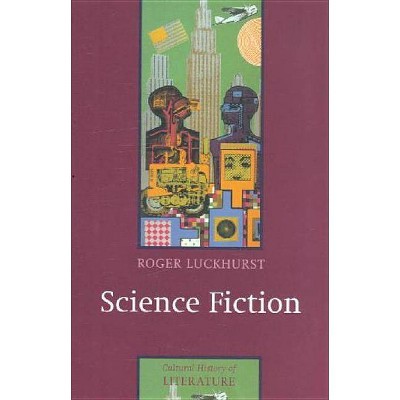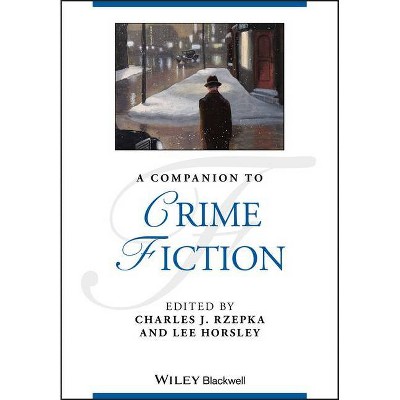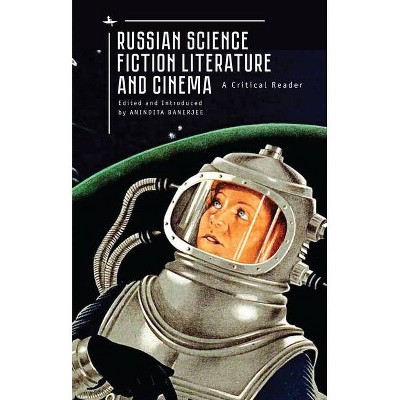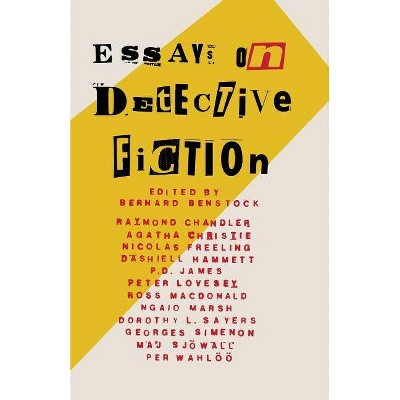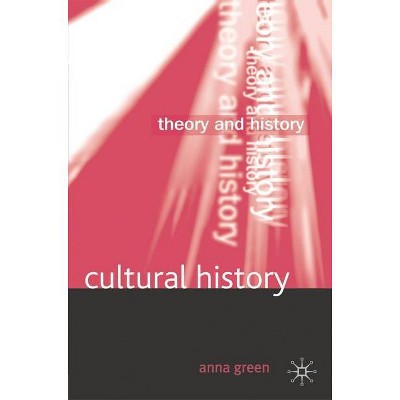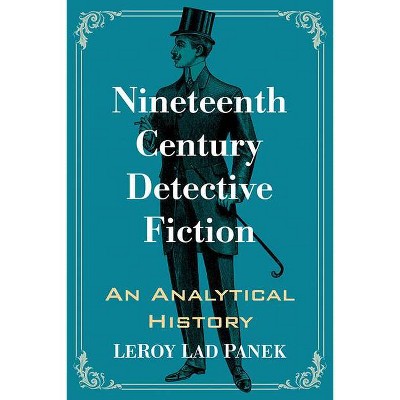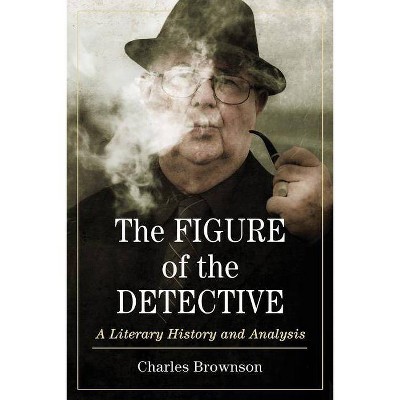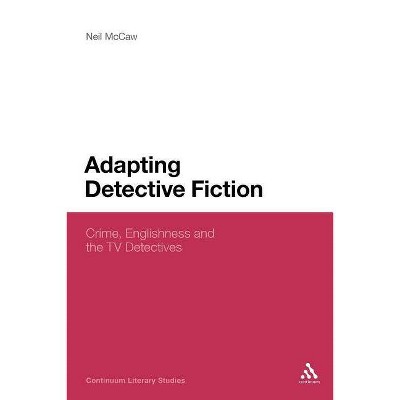Detective Fiction - (Cultural History of Literature) by Charles J Rzepka (Paperback)
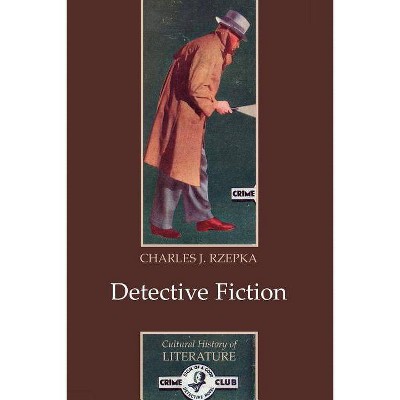
Similar Products
Products of same category from the store
AllProduct info
<p/><br></br><p><b> Book Synopsis </b></p></br></br>Detective Fiction is a clear and compelling look at some of the best known, yet least-understood, characters and texts of the modern day. Charles J. Rzepka traces the history of the genre from its modern beginnings in the early eighteenth century, with the criminal broadsheets and 'true' crime stories of The Newgate Calendar, to its present state of diversity, innovation, and worldwide diffusion, in a manner that students and scholars alike will find readable and provocative. <br /> <br /> The book focuses particularly on the relationship of detective fiction's emerging 'puzzle-element' to the investigative methods of the nascent historical sciences, and to popular cultural attitudes toward history, particularly in Great Britain and the United States. In addition, the author examines the specific impact of urbanization, the rise of the professions, brain science, legal and social reform, war and economic dislocation, class-consciousness, and changing concepts of race and gender. Extended close readings of the classics of Detective Fiction in several 'Casebook' essays devoted to seminal works by Poe, Doyle, Sayers, and Chandler show in detail how the genre has responded to these influences over the last century and a half. They also serve to introduce students to a variety of current critical approaches. <br /> <br /> <br /> Undergraduate students of Detective and Crime Fiction and of genre fiction in general, will find this book essential reading.<br /> <br /> <br /> 'Cool, savvy, and utterly compelling: every page of Charles J. Rzepka's magnificent history of detective fiction displays the forensic panache of the true connoisseur of murder. Commanding an unrivalled breadth of reference and depth of insight, the book is a must-read for everyone interested in detective fiction.' <br /> <br /> <br /> Nicholas Roe, University of St Andrews<br /> <br /> <br /> <br /> <br /> <br /> 'In this sustained analysis of the emergence and development of detective fiction in England and America, Charles Rzepka has produced both a compelling cultural history and a skilful demonstration of what Poe aptly called "the moral activity which disentangles". It will become an indispensable guide to serious students of detective literature.'<br /> <br /> <br /> Ronald R. Thomas, University of Puget Sound<p/><br></br><p><b> From the Back Cover </b></p></br></br><i>Detective Fiction</i> is a clear and compelling look at some of the best known, yet least-understood, characters and texts of the modern day. Charles J. Rzepka traces the history of the genre from its modern beginnings in the early eighteenth century, with the criminal broadsheets and 'true' crime stories of The Newgate Calendar, to its present state of diversity, innovation, and worldwide diffusion, in a manner that students and scholars alike will find readable and provocative. <p>The book focuses particularly on the relationship of detective fiction's emerging 'puzzle-element' to the investigative methods of the nascent historical sciences, and to popular cultural attitudes toward history, particularly in Great Britain and the United States. In addition, the author examines the specific impact of urbanization, the rise of the professions, brain science, legal and social reform, war and economic dislocation, class-consciousness, and changing concepts of race and gender. Extended close readings of the classics of Detective Fiction in several 'Casebook' essays devoted to seminal works by Poe, Doyle, Sayers, and Chandler show in detail how the genre has responded to these influences over the last century and a half. They also serve to introduce students to a variety of current critical approaches.<br /> </p> <p>Undergraduate students of Detective and Crime Fiction and of genre fiction in general, will find this book essential reading.<br /> </p> <p>'Cool, savvy, and utterly compelling: every page of Charles J. Rzepka's magnificent history of detective fiction displays the forensic panache of the true connoisseur of murder. Commanding an unrivalled breadth of reference and depth of insight, the book is a must-read for everyone interested in detective fiction.'<br /> </p> <p><i><b>Nicholas Roe</b>, University of St Andrews</i><br /> </p> <p><br /> </p> <p>'In this sustained analysis of the emergence and development of detective fiction in England and America, Charles Rzepka has produced both a compelling cultural history and a skilful demonstration of what Poe aptly called "the moral activity which disentangles". It will become an indispensable guide to serious students of detective literature.'<br /> </p> <p><i><b>Ronald R. Thomas</b>, University of Puget Sound</i></p><p/><br></br><p><b> Review Quotes </b></p></br></br><br>The secret and importance of mysteries have always been mysteries themselves. This fine analytical study is a five-story library analyzed and mixed into answering the many questions that arise ... (an) exhaustive and comprehensive guide, which needs to be owned and studied by all literary-cultural-crime fiction scholars. <br /> <b><i>Journal of American Culture</i></b> <p>A lucid and fascinating exploration of the cultural changes that influenced the 19th and early 20th-century development of the genre.<br /> <b><i>Times Higher Education Supplement</i></b></p> <p>Rzepka's real strength is his clear, graceful writing which sets his overview apart from its many competitors. In his discussion of the unique sensibility of Sherlock Holmes, the baffling morality of Sam Spade, or the sullied romanticism of Philip Marlowe, Rzepka is as skillful as these accomplished detectives?rightly perceiving a depth of complexity, shrewdly identifying their key elements, and clearly tracing their inherent logic ? Admirably [fulfils] its stated purpose ... to be a stimulating overview of this genre from its origins up to present day and to be read by college undergraduates.<br /> <i><b>Modernism/Modernity</b></i></p> <p>Cool, savvy, and utterly compelling: every page of Charles J. Rzepka's magnificent history of detective fiction displays the forensic panache of the true connoisseur of murder. Commanding an unrivalled breadth of reference and depth of insight, the book is a must-read for everyone interested in detective fiction.<br /> <b>Nicholas Roe</b>, <b><i>University of St Andrews</i></b><br /> </p> <p>In this sustained analysis of the emergence and development of detective fiction in England and America, Charles Rzepka has produced both a compelling cultural history and a skilful demonstration of what Poe aptly called 'the moral activity which disentangles'. It will become an indispensable guide to serious students of detective literature.<br /> </p> <p><b>Ronald R. Thomas</b>, <b><i>University of Puget Sound</i></b></p><br><p/><br></br><p><b> About the Author </b></p></br></br><b>Charles Rzepka</b> is Professor of English at Boston University.
Price History
Price Archive shows prices from various stores, lets you see history and find the cheapest. There is no actual sale on the website. For all support, inquiry and suggestion messages communication@pricearchive.us
